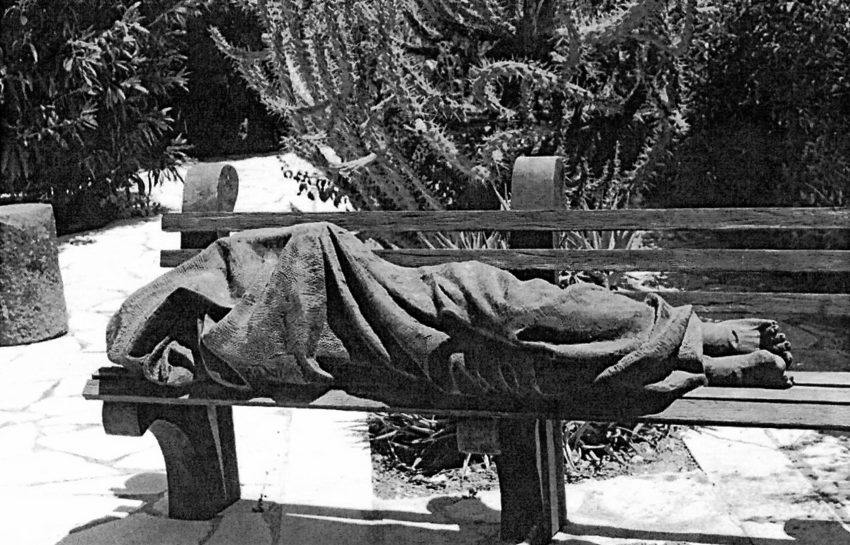The Easter Epistle and Insert
Thank you to Rev. Paul Corman who is visiting the US for offering this contemplation:
The Easter Epistle and Insert
Easter Sunday this year has come and gone, but the Easter season will continue for 40 days until Ascension. In these 6 weeks we will hear in the Act of Consecration of Man, the Easter Epistle. Taking into account what we have heard during Passiontide, we will notice that the motifs continue to transform into the main motifs of Easter. The “locations” of the transforming activity have remained the same: the heart, blood, the breath, and consciousness. It is the effects that have changed.
Before in Passiontide, the heart was empty and burning; now it is the tomb that is empty and the heart that is full.
Before, we lived in the cold earthly house, forsaken of the spirit; now we feel the warmth that transforms the beat of the heart into rejoicing and healing power.
Before, it was loss and abandonment that we felt; now we feel fulfillment and the comfort of the spirit.
Before, what touched our consciousness was waiting and a ray of sadness from a tomb of hope that penetrated our gaze; now we experience the vanquisher of death, joy and grace.
It may seem obvious that, with Easter, sadness leaves and jubilation and joy take over our experience. This is what we feel and celebrate, especially with children. However, if our celebration takes place mostly in the emotional realm, very soon the worries of life and daily chores will demand most of our attention and the deeper meaning of Easter will fade into the background. The truth is that Easter has to be the center of our Christian life all year long. It is to give “flavor” and “color” to all the other festivals and, indeed, to everything we experience throughout the year. This aspect of Easter is seen even more strongly in the prayer inserted in the middle of the Act of Consecration during the festive seasons. The Easter insert advises us that the Easter resurrection is not only for us humans; it says that jubilation and delight live “in the air around the Earth” and that the breath of the Earth lives in the sun, radiating the power of the spirit. Easter re-unites the spiritual forces of the Earth with those of the Sun through the Christ. Christ’s deed of Easter brought something of unification back into the universe, something which since the fall had been separated. But even more than that, the human being is inserted into the universal fabric in a way that was never before possible. Truly, from Easter Sunday onwards, everything is different. It will, however, take time until human beings become aware of this fact in such a way that from our consciousness, we transform our behavior. The insert goes on to explain that Christ has entered the pulse of our lives from where he can transform our souls. First of all, it speaks of the devoted soul. Devote comes from the Latin “devotus”, given to, offered to, consecrated to. The prefix “de” means “from top to bottom”, that is, completely, and the word “vote” comes from the Latin verb “vovere”, to consecrate, to dedicate, to offer, but also has to do with another Latin verb “votare”, to make vows, offerings, to promise, to express a desire. We have several words that come from these verbs: vote, devote, devotion, devout and vow. The word “devoted”, then, encompasses the religious, social and political fields, revealing the relationship of the religious underpinnings in other areas of life. Imagine how different the world might be, if we would feel more this undercurrent reality of our voting in an election or when committing ourselves to an impulse or a project, and when taking vows in marriage.
The insert then presents some extraordinary images to make even more vivid what happened with the resurrection: what in strength has risen “from the chains of death”, what in light has been born again in “the life of Christ”, “what heals the self” in the depths of the soul. It speaks of the human constitution and the transformation of its constituent members, by the forces of the resurrection: “the soul that was dead, lives; the self that was dark, shines, the spirit that was closed springs open and “abounds”. But, for me, the most striking thing is what follows. The human soul that was a tomb has been opened and now forms an altar. Christ as a priest celebrating the offering on this altar, which is illuminated not by candles, but by “the spirit-light of man”. And again, the insert broadens our view of space and time to the utmost, saying that Christ celebrates this offering at the altar of the human soul “to the worlds afar, to the earth near, now and beyond all cycles of time.”
Could there be more beautiful, more encouraging, more hopeful images, that at the same time reveal our participation in and responsibility for Christ’s work and goals? In this brief attempt to present the epistle and the Easter insert, we can discover enough material to continue thinking about and contemplating the deeper meaning of Easter, during the 40 days until Ascension, and, indeed, for the rest of our lives.
–Rev. Paul Corman, April 2021

